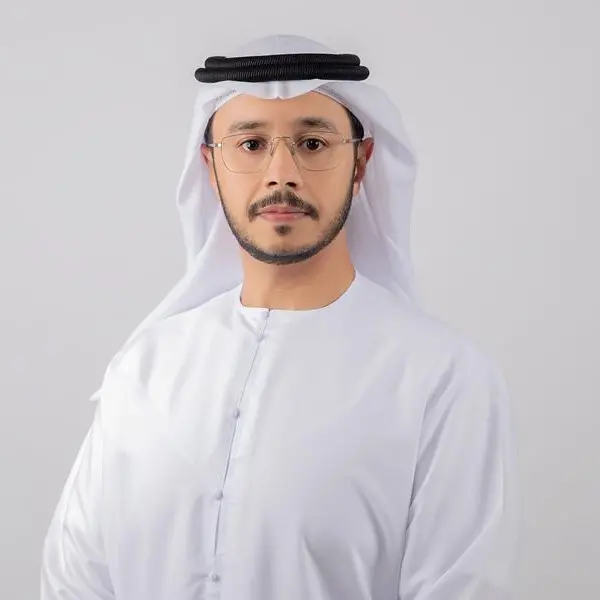PHOTO
Dubai – UAE: Mohammed Bin Rashid Space Centre (MBRSC) has signed a Memorandum of Understanding (MoU) with SpaceData, a Tokyo-based startup engaged in R&D aimed at the fusion of space and digital, to develop two key digital twin solutions. A digital twin is a virtual model or replica of a real-world object, system, or process, which can help entities test real-life situations and predict outcomes to make smarter decisions.
According to the MoU, for space exploration, SpaceData will create a high-fidelity lunar digital twin platform while for supporting economic initiatives, they will deliver a detailed Earth-based digital twin platform.
For the Emirates Lunar Mission, SpaceData will provide a simulation environment leveraging MBRSC’s rover observation data for enhancing mission efficiency and accuracy in upcoming lunar exploration. SpaceData will also develop a digital twin environment to support lunar exploration training for UAE astronauts. This high-fidelity simulation will replicate lunar surface conditions, providing detailed three-dimensional spatial and physical environmental data. The training will enhance UAE astronauts’ capabilities, ensuring safe and efficient exploration activities.
SpaceData will also develop a highly detailed digital twin of Dubai’s urban environment. This project aims to drive tourism and economic development by offering immersive, digital experiences of the city. The platform will enable virtual tourism, transcending geographical and temporal limitations, and unlocking new opportunities for global tourism demand. Furthermore, by incorporating satellite and meteorological data, SpaceData will construct a disaster prediction digital twin for Dubai, focusing on large-scale disaster simulations to enhance safety. Dubai is currently undergoing significant urban development, and the innovative solution will help address safety risks arising from climate challenges while supporting sustainable development.
Adnan AlRais, Assistant Director General, Space Operations and Exploration Sector, MBRSC, said, “The partnership between the Mohammed Bin Rashid Space Centre and SpaceData is a step toward integrating advanced digital twin technologies into our space exploration initiatives. This collaboration will enable us to enhance the precision and efficiency of our lunar missions, provide immersive training environments for our astronauts, and support Dubai’s ambitious vision for sustainable economic growth through innovative digital platforms. Together, we are not only shaping the future of space exploration but also redefining how cutting-edge technologies can drive progress and unlock new opportunities for humanity.”
Atsushi Takata, Executive Vice President, SpaceData, said, “This international partnership with the Mohammed Bin Rashid Space Centre represents a milestone in our journey to make space exploration more accessible and impactful through advanced digital twin technologies. By integrating our innovative solutions with the UAE’s ambitious space initiatives, we aim to empower new possibilities for economic development on Earth and scientific discovery and exploration on Moon. Together with MBRSC, we are excited to push the boundaries of what is possible—both in orbit and beyond!”
The collaboration reflects MBRSC’s continued commitment to fostering international partnerships that contribute to scientific advancement, technological innovation, and sustainable growth.
ABOUT MOHAMMED BIN RASHID SPACE CENTRE (MBSRC):
MBRSC is an advanced scientific and technological hub, responsible for making the UAE
a world leader in space services and exploration.
Established in 2006, the Mohammed Bin Rashid Space Centre (MBRSC) started out with five engineers, who took it upon themselves to develop their capabilities and expand their knowledge in the field of space, relying on strong will and solid determination. Since then, the Centre has continued its journey to be the incubator of the UAE National Space Programme. The MBRSC is home to the Satellite Development Programme, UAE Astronaut Programme, Mars 2117 Programme and Emirates Mars Mission, among others. Under its satellite programme, the Centre has built, developed, and operated several Earth observation satellites, including DubaiSat-1, DubaiSat-2 and KhalifaSat, the first satellite that was fully built by Emiratis in 2018. The Centre has also developed MBZ-SAT, the most advanced satellite in the region, which will be launched in January 2025.
MBRSC is also developing the Emirates Airlock, a crew and science airlock module for the Gateway lunar space station, humanity's first international outpost to orbit the Moon. Additionally, the UAE will also be sending an Emirati astronaut on a Moon mission. Under the UAE Astronaut Programme, MBRSC currently has four astronauts, two of who have undertaken missions to the International Space Station, including the longest Arab space mission in history by H.E. Dr. Sultan Saif AlNeyadi. The Mars 2117 Programme includes the Emirates Lunar Mission, UAE Analog Programme and Space Ventures.


















